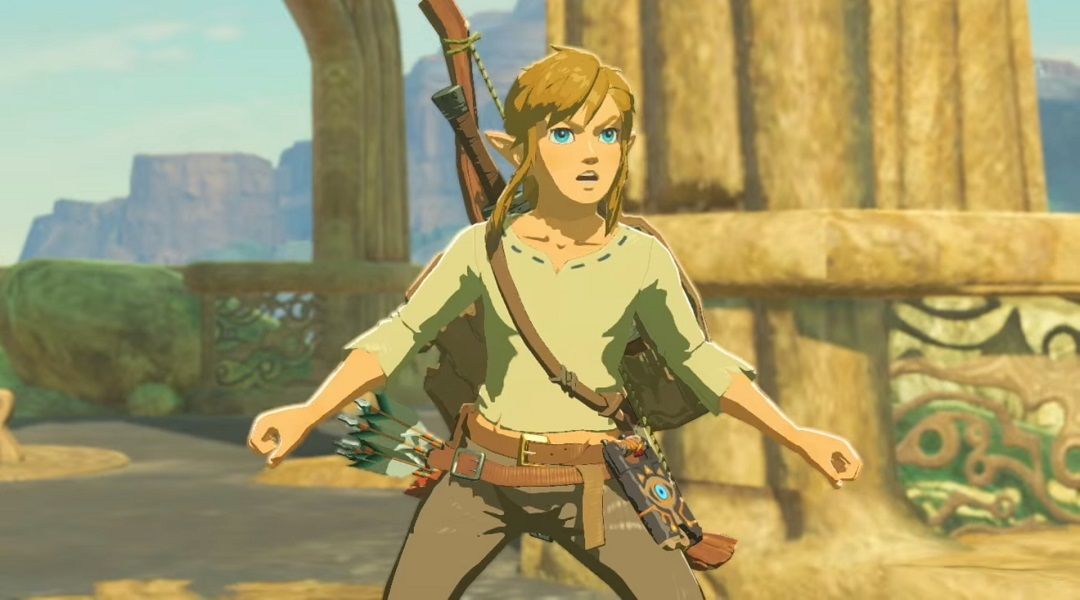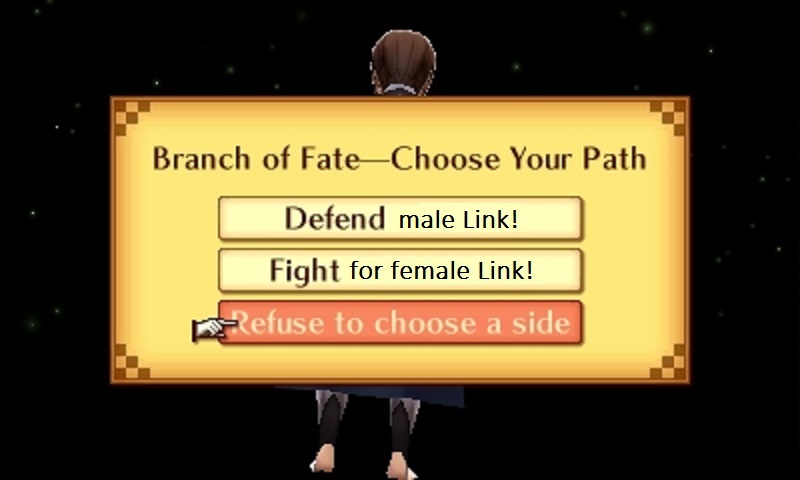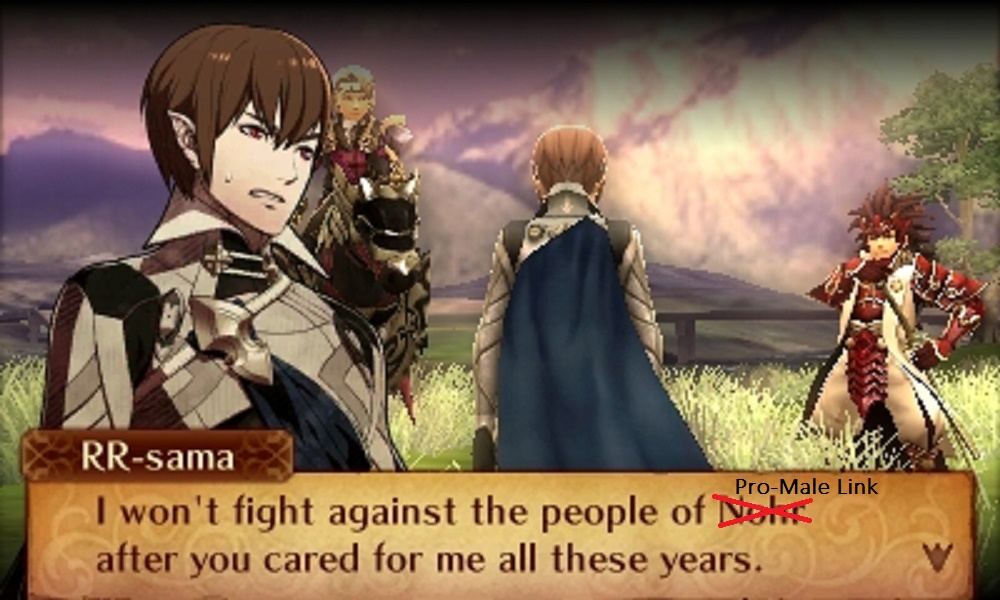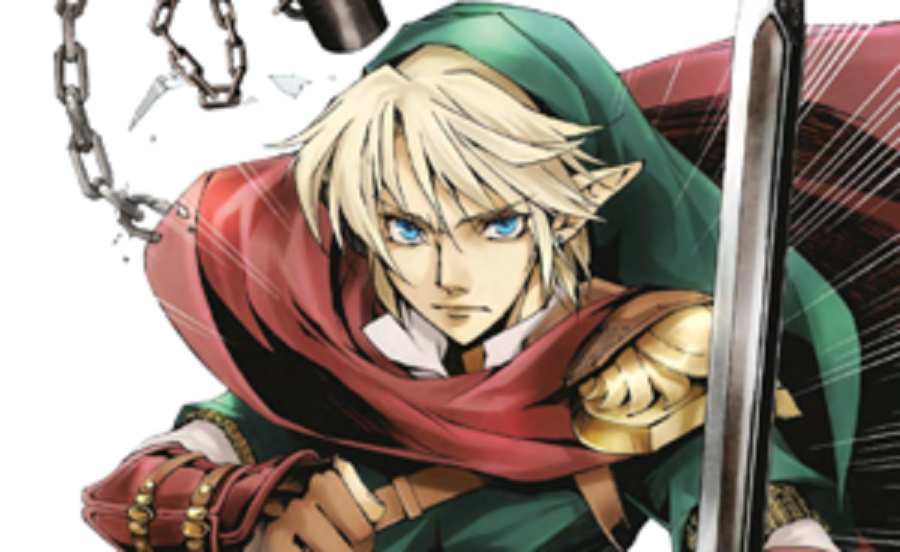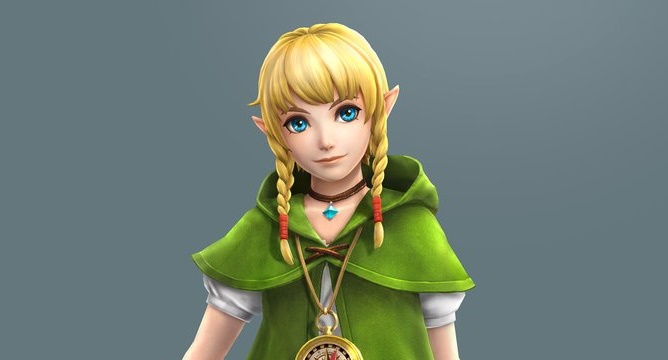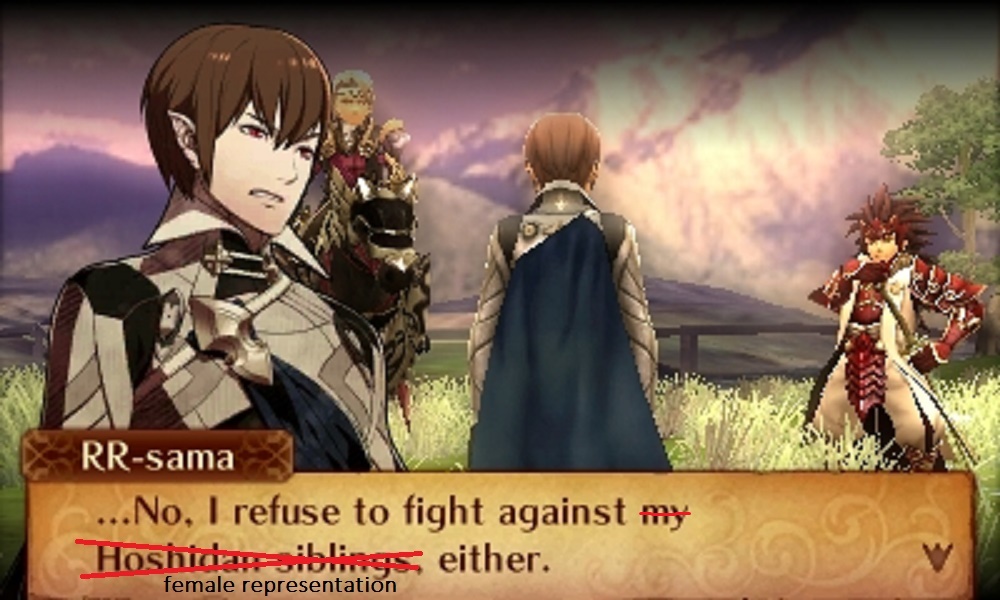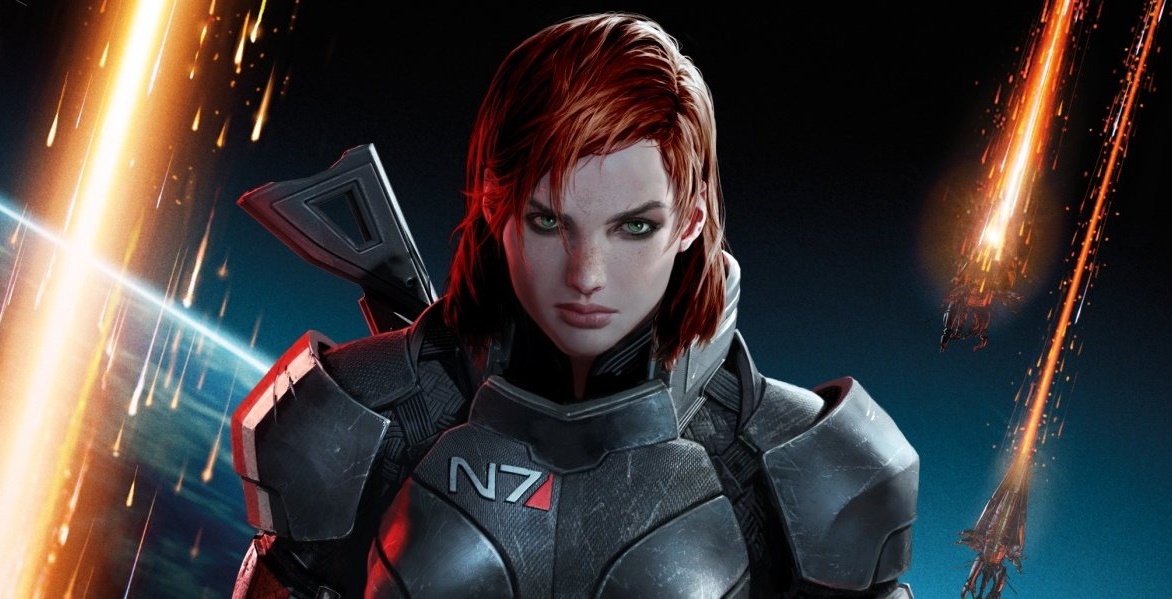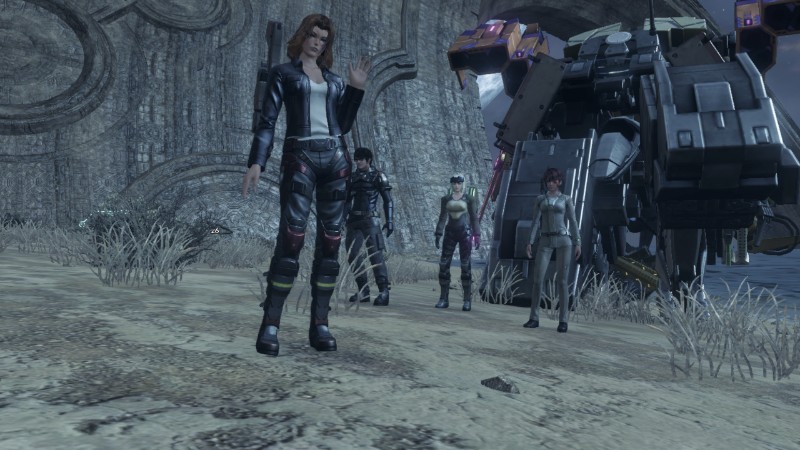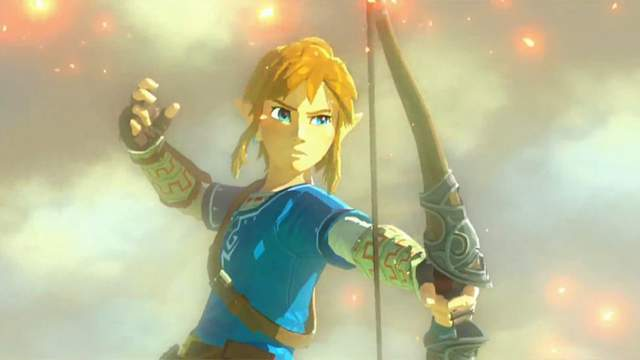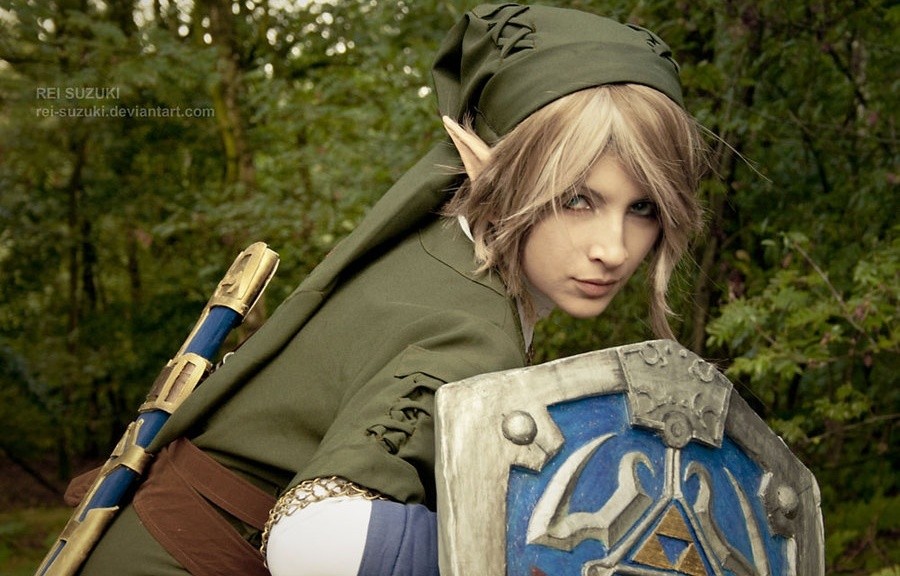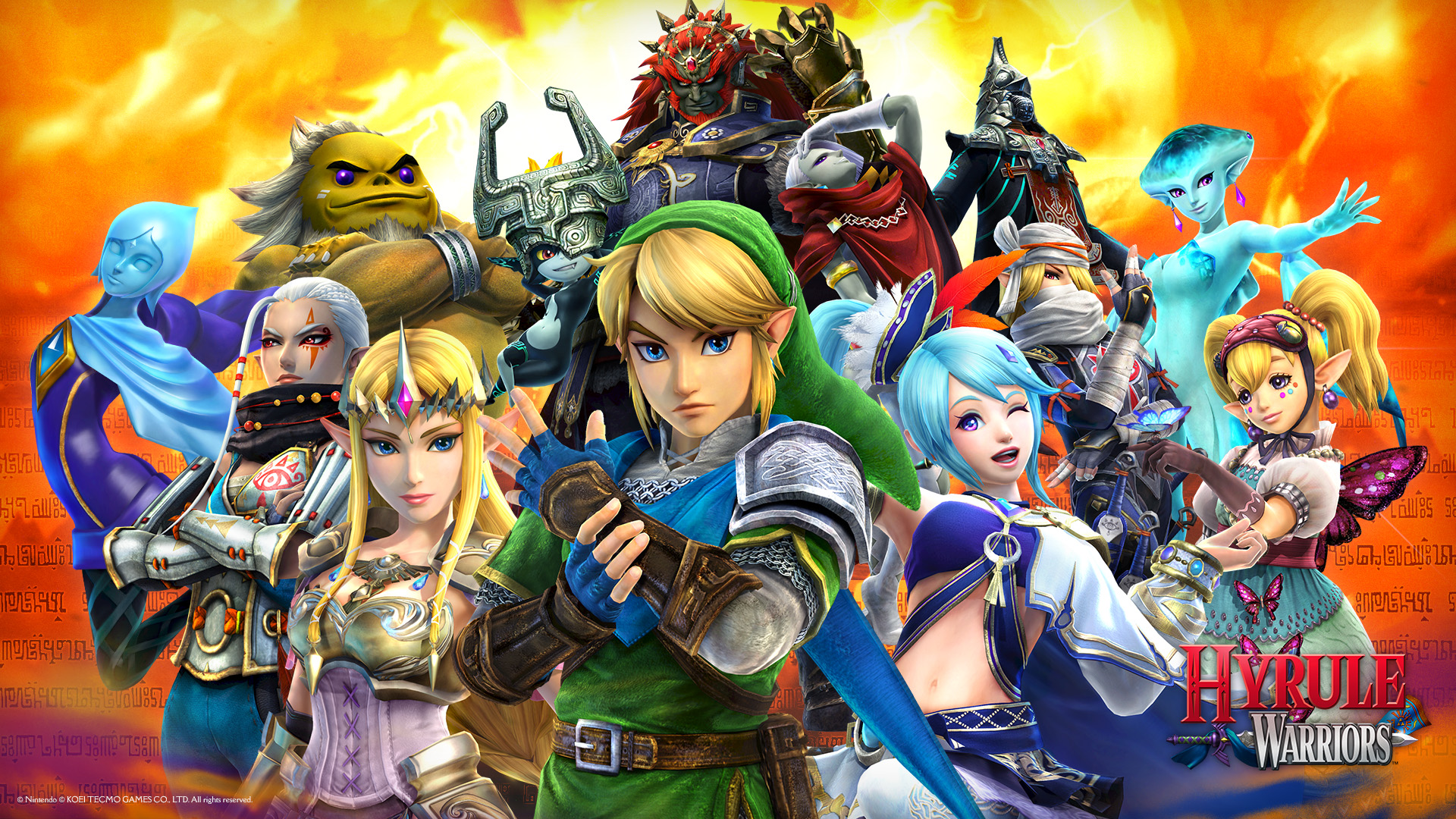The Legend of Zelda: Breath of the Wild looks like an amazing game. In fact, I couldn’t get enough of the game while scribbling down notes for my coverage of the latest Legend of Zelda gameplay. Surely this game will be the one that pushes video games beyond yet another horizon just as its ancestor, the original Legend of Zelda (NES), did just over 30 years ago.
Leading up to the E3 event, there were many rumors that Link would have a female equivalent. One such rumor was covered by Nintendo Life where some were suggesting that the two Links on the badge were different. Another suggested that Ponytail Link was the cavalry call of a female hero for the Legend of Zelda universe.
Social politics then reared its head once more, and as a result gamers and world-changers of all kinds solidified into, primarily, one of two camps:
- “Link is a man! He always has been, always will be, and that is how it is!”
- “There should be a female Link. We need more representation of women in video games!”
Oddly enough, neither side seemed particularly bothered by the possibility of a female Link. That is, up until a recent interview conducted by Kotaku in which Aonuma stated:
“You know there’s the idea of the Triforce in the Zelda games we make […] […] The Triforce is made up of Princess Zelda, Ganon and Link. Princess Zelda is obviously female. If we made Link a female we thought that would mess with the balance of the Triforce. That’s why we decided not to do it.”
– Quote retrieved via Kotaku
Anyone who has followed my RR-sama Talks or Rewind Reviews knows that I’m no stranger to controversy. As such, the question I quickly stumbled upon while reading this controversy quickly became: “How does one mediate between two sharply opposed sides that refuse to yield even a single step?”
Simple. As logical people we look at both sides as we argue a third path.
Link is a male character, and nothing will change this.
Whether you like it or not, Link has an established history as being a male character. Ever since Link’s debut on the Famicom in Japan, Link has traveled across Hyrule, across alternate worlds, and even across time as a male. Some might argue that this is a result of male privilege, and maybe it is. I wouldn’t really know.
However, I would nevertheless argue that this has nothing to do with privilege. My position on having Link remain a male character is based purely in canon and consistency.
You know… Fire Emblem: Fates is really helping me understand this situation better, even if the edits to the text are sub-standard!
The argument via lore…
One of the major arguments against Aonuma-san’s quote is that the nature of Link’s reincarnation means each Link is his own person. The argument goes on to state that the reason that a female Link could fit into the canon is that Link isn’t just one person. Essentially, the concept of the hero in The Legend of Zelda is one of inheritance, an inheritance that a female character could take up.
However, this is a case of a fallacy of false attribution.
Enter Hylia’s Chosen Hero!
When Aonuma stated that Link’s change to a female character would upset the “balance of the Triforce” his argument sounded rather weak. However, the Hyrule Historia confirms that his argument is in fact true.
If we are to make the argument that the Hyrule Historia is a tell-all truth of Hyrule’s lore, then all content in the book is considered canon. As such, this manga is not only canonical by its inclusion at the end of the Hyrule Historia, but also taps into the lore of The Legend of Zelda: Skyward Sword – a game that dives deep into Hyrule’s history (and a game I found quite enjoyable as well).
In the Skyward Sword manga (which can be found here), Hylia’s Chosen Hero falls after his battle with Demise. However, before his spirit is lost Hylia states the following:
“I will ensure that your gentle, heroic spirit will live on eternally. And I… I shall shed my divinity. The next time we meet, I wish to stand before you as a simple human. Whenever the land of Hylia is in danger… We shall be reborn…”
– Quote retrieved from Hyrule Historia, Skyward Sword Manga
In case this isn’t direct enough for some readers, Hylia is literally stating that she and her chosen hero (who is a male) will be reborn eternally as mortals. Like it or not, this means that according to the canon: Link must always be male. This is further confirmed by conversations, plot points, and other events that occur within The Legend of Zelda: Skyward Sword.
B-but there was a female Link!
Let me just get a personal note off here: I feel like slapping people with a fish every time I hear people say that Linkle is a female Link. In fact, gaming news groups have still to realize that Linkle is not Link.
As such, let me set the record straight once and for all: Linkle is not a female Link. In fact, she couldn’t be further from it! Even if we entertain the idea that Hyrule Warriors – a spin off title – is canon, we still don’t have a female Link. Why? Well, consider the following…
- Link is the Hero in Hyrule Warriors Legends. He is the one who bears the Triforce of Courage, and bearing it upon the back of their hand is canonically the signifier of a character being the Legendary Hero.
- Linkle cannot be Link – or the Legendary Hero by extension – as they appear in the same cutscene.
- Therefore, Linkle is not a female Link, and by extension is not the Legendary Hero either.
Linkle claims to be the Legendary Hero, but this is mostly a delusion put into her head by her grandmother. The only reason anyone in the game entertains the idea in Hyrule Warriors Legends is that her compass strangely glows whenever she completes a mission.
That’s not to say we shouldn’t have a female protagonist in a Legend of Zelda main-series title!
Seriously though, Nintendo. Thanks for the easy-access analogy here!
I honestly cannot understand how people immediately jump to the conclusion that the lack of desire for a female Link means that gamers are still a “men’s club” or that they are sexist. Not wanting a female Link and being a feminist or equalist are not mutually exclusive. In fact, I would argue that wanting a female Link does more harm than good.
The reason is simple: we aren’t solving the issue of female representation in video games by swapping out Link’s penis for a vagina. We would only be adding to the problem by proving that no one can write a proper female character.
A female hero isn’t about what’s between the legs…
When discussing the lack of female role models and heroines in video games, a popular argument typically falls into the discussion: “player made characters cannot be considered for representation of women.”
The reason why many female gamers – and game critics by extension – believe that custom characters do not count is because the storylines typically get watered down in order to be gender neutral. This can be seen in many games such as Xenoblade Chronicles X, Mass Effect, The Elder Scrolls, and more. While the stories aren’t bad by any means, they don’t often address the character’s gender, and as such it isn’t an accomplishment by a female character.
However, this argumentation only adds to the argument against the inclusion of a female Link to the canon in the following ways:
- If players have the ability to choose either a male of female Link as the protagonist, the assumption should be that it would water down the plot and invalidate the female Link as a hero, just as it does for any other franchise.
- If the argument is that using a female protagonist instead of a male one promotes diversity and inclusion, then having only a female Link would fail to promote said diversity and inclusion.
- In either case the inclusion of the female Link would violate the canon of the series as a whole, thus increasing tensions between series fans and those seeking to promote female equality.
- As such, creating a female Link can only cause more harm than good.
So does this mean that men and/or gamers are horrible misogynists that cannot be reasoned with, and feminism in video games as a whole is doomed?
Not at all.
Men aren’t against the idea of playing as a female character, in fact, more men would play as a woman than women as a man!
Above is an image taken from Xenoblade Chronicles X, a game in which players customize their own avatar to explore the vast lands of the uncharted planet, Mira. The character at the front is none other than your very own RR-sama’s character who goes by the name Victoria Coughlan. I, for one, am one of the many male gamers who – from time to time – like to engage in playing as a female character in video games whether it be online or offline.
Now, I won’t deny that there are certainly a fair share of male players who wouldn’t dare play as a female character. Some people I know avoid playing as female characters, lest their frail masculinity be destroyed before an audience. However, I’d like to believe that I speak for a fair portion of the male gaming community when I say the following:
“We have no problem playing female characters. Sometimes we do it for the advantages and perks of the game, other times we do it just for a change of pace. At the end of the day, we really don’t care if the female option is there – as long as it makes sense according to the game.”
– RR-sama, via this article
Of course, I’m obligated to prove this, and so I went out of the way to pull up some statistics. According to a study conducted in 2014, the researchers involved found that more men than women were likely to create characters of the opposite gender. In fact, the gap was rather wide with 23% of men who played World of Warcraft were likely to choose to switch genders for their avatars in game – this in contrast to 7% of women in the same sample.
While the researchers stated that there is a possibility that some may have played opposite to how they would play normally, it does show that there is certainly a fair share of men who would play as a woman given the chance.
Okay, we get it. So why the problem with Link then?
Sometimes the most disappointing answer for either side is the truest one. The fact of the matter is that people don’t want a female Link; they want a character that is female in the Legend of Zelda universe. The problem has never been that people need Link to be female, but rather that if there is to be more female representation in the series it needs to be an individual character.
Take a look at the public reaction. While I wouldn’t go so far as to call the people crying foul for the lack of a female Link, I would say that most of them are ill-informed in terms of their fandom’s lore at the very least. Even those who were sent into uproar about an opposing view article on our very own site share one common element: whether you’re a man or a woman, we don’t want a female Link.
In fact, look closer at the people commenting. If you get past all the hate, the sh*tposters, and the extremists, you’ll realize that no one ever said the game is ruined because there is no female Link. No one said that the game would be ruined if there’s a female character. We just don’t want a female Link because she is not the character we grew up with.
Of course, there’s also a fairly basic reason for anti-female Link advocates, one that goes back all the way to Link’s 3D debut.
Link is androgynous
For those who don’t know what it means, androgynous is defined as: neither clearly masculine nor clearly feminine in appearance. Link has fit that bill ever since the start of the series. It’s the very reason that many people still confuse Link as Zelda or as a female character to begin with.
Link isn’t exactly the most masculine character around either. He’s no male power fantasy. He’s not running around shirtless with a chest full of muscle, he’s barely able to stand up straight when he deflects an enemy blow, and he never has a game without at least one cinematic where he is terrified. In fact, most Legend of Zelda titles rarely refer to Link as a male either, instead opting for the “Legendary Hero” title or using the gender ambiguous “youth”.
Link’s androgyny is best seen in cosplay as both male and female cosplayers are able to pull off the character’s design and proportions with relative ease regardless of their build…
This, of course, all ties into the direction of the game’s design. During an interview with Time, Aonuma stated the following:
“Back during the Ocarina of Time days, I wanted Link to be gender neutral. I wanted the player to think ‘Maybe Link is a boy or a girl.’ If you saw Link as a guy, he’d have more of a feminine touch. Or vice versa, if you related to Link as a girl, it was with more of a masculine aspect. I really wanted the designer to encompass more of a gender-neutral figure. So I’ve always thought that for either female or male players, I wanted them to be able to relate to Link.”
“During the development of Twilight Princess, I went a different route and created a version of Link that was more masculine. But after Twilight Princess I went back to the drawing board and decided Link should be a more gender-neutral character. Hence I created the version of Link that you see in Breath of the Wild. As far as gender goes, Link is definitely a male, but I wanted to create a character where anybody would be able to relate to the character.”
“So that’s why I think the rumor went around that Link could be a female. Because maybe the users were able to relate in that way.”
– Aonuma via Time
So there you have it, straight from the horse’s mouth. Link isn’t even supposed to be identified as a purely male character. He is supposed to be your ‘Link’ as Miyamoto once said long ago.
And it makes sense, really. The issue of Link’s gender has only become a bigger problem with the rise of social change, but it was an inevitable issue that would come into light after Link took to the 3D stage. People expect their hero to have a voice, and choosing an androgynous voice is near impossible as you risk the character sounding too feminine or masculine.
In the end, all Nintendo needs is a new character to take a stand against the forces of evil in Hyrule…
Nintendo did a great job with Hyrule Warriors. The game’s 3DS port features a cast of 28 confirmed characters, 14 of which are female. I would be hard pressed to believe that every single Legend of Zelda fan who is against there being a female Link didn’t play as a single female character in this game.
This game is my ultimate argument against those who say we are missing the point about a female Link, no matter what angle they try to use. We aren’t against female playable characters, we aren’t against female representation in The Legend of Zelda, we aren’t even against the possibility of a Link-like female character.
All anyone wants is Link to be Link. You can do whatever else you want in terms of adding a female protagonist.
Is that really so hard to understand?
What are your thoughts on the male/female Link debate? Do you think we really need a genderbent Link to forward equality? Are you more centered like I am? Leave your arguments in the comments section below!

